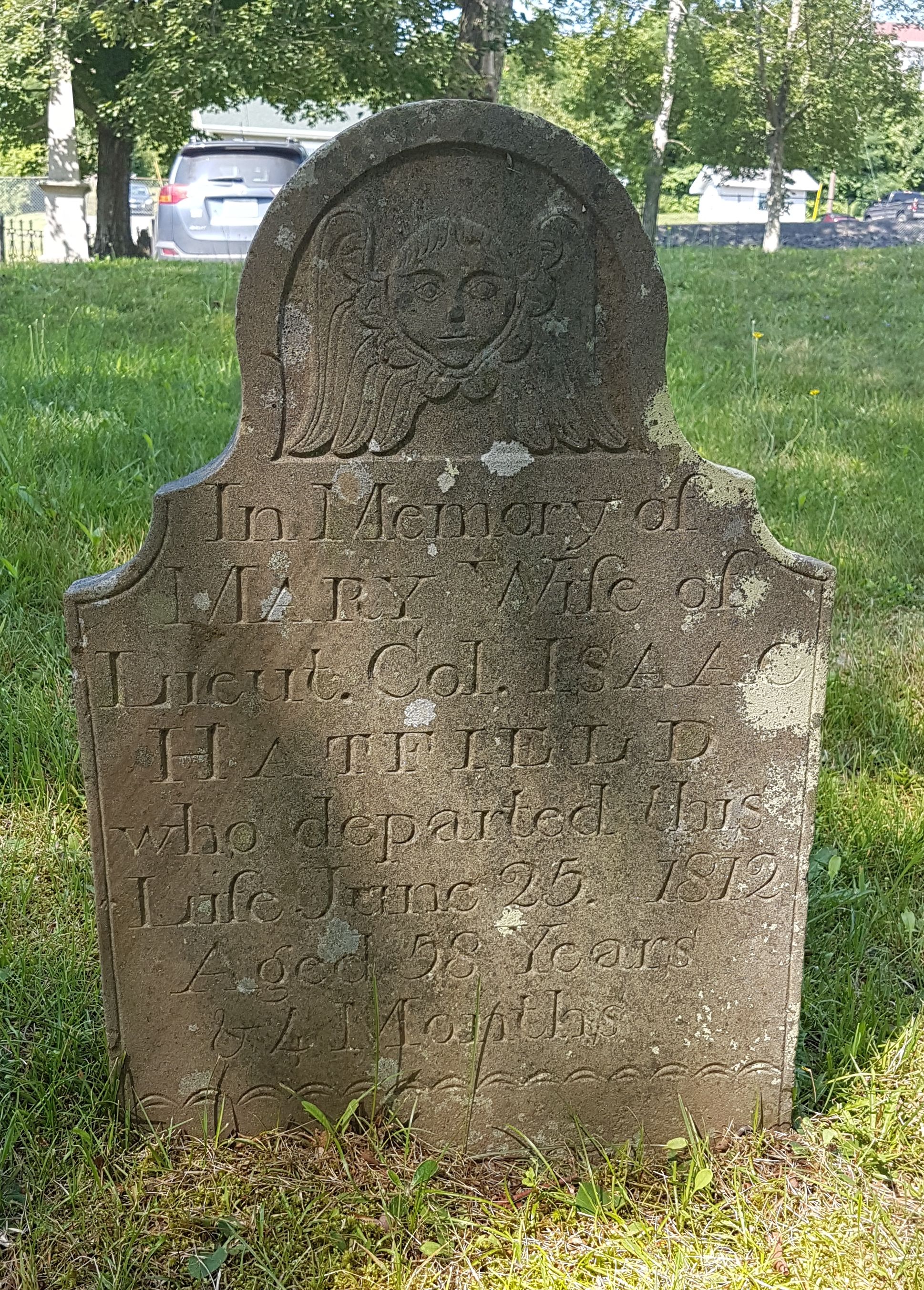Raid on Isaac Hatfield’s House
As I described yesterday, in January 1780 Capts. Samuel Lockwood and Samuel Keeler of the Connecticut militia attacked the home of Isaac Hatfield, Jr., in Morrisania, New York.
Hatfield (1748-1822) had been born in America to a substantial farming family and raised in Westchester County. The notes of what he later told the Loyalists Commission say:
When the Crown forces landed on Long Island in the fall of 1776, Hatfield volunteered for the Queen’s Rangers, commanding a company in that Loyalist regiment. In 1777 he joined Gen. Oliver De Lancey’s Brigade. Then came commissions from Gov. William Tryon to be an officer in the Westchester County militia, ultimately a lieutenant colonel.
On 18 January, the Connecticut militia came for Hatfield. The raiders shot three sentries and killed his horse—“a very fine horse,” worth 40 guineas, Hatfield’s lieutenant, Thomas Kipp, recalled.
Hatfield and the men stationed with him raced to the upstairs chambers of the house. There, Lt. Col. Matthew Mead of Connecticut wrote, “they had prepared a number of Casks of salt, of Flour & other lumber” as barricades.
In his memoir Gen. William Heath described the fighting inside Hatfield’s house:
But then Maj. Huggeford escaped.
TOMORROW: Rearguard action.
[The photo above, from Find a Grave, shows the headstone of Mary (Bayeux) Hatfield, whom Lt. Col. Isaac Hatfield married in 1786 after settling in Digby County, Nova Scotia.]
Hatfield (1748-1822) had been born in America to a substantial farming family and raised in Westchester County. The notes of what he later told the Loyalists Commission say:
On breaking out of Troubles, from the first took part with Brit. Was required by rebels to serve in their Militia, & to sign their Association, which he refused. In consequence Of this he made himself Obnoxious. They fin’d him which he refused to pay, & he was obliged to quit home.While he was away, Hatfield said, “he lost 18 Head Cattle, 4 Horses, farm horses, 50 Sheep.” He “Heard Of some being taken by one person, some by another, some for fines.” In other words, his neighbors were stripping away his property.
When the Crown forces landed on Long Island in the fall of 1776, Hatfield volunteered for the Queen’s Rangers, commanding a company in that Loyalist regiment. In 1777 he joined Gen. Oliver De Lancey’s Brigade. Then came commissions from Gov. William Tryon to be an officer in the Westchester County militia, ultimately a lieutenant colonel.
On 18 January, the Connecticut militia came for Hatfield. The raiders shot three sentries and killed his horse—“a very fine horse,” worth 40 guineas, Hatfield’s lieutenant, Thomas Kipp, recalled.
Hatfield and the men stationed with him raced to the upstairs chambers of the house. There, Lt. Col. Matthew Mead of Connecticut wrote, “they had prepared a number of Casks of salt, of Flour & other lumber” as barricades.
In his memoir Gen. William Heath described the fighting inside Hatfield’s house:
The Colonel and his men took to the chambers, and fired out at the windows and down stairs at those who had entered the house; it appeared difficult, if possible, to dislodge them, the house was instantly set on fire, by putting a straw bed into a closet [i.e., small room], which compelled the enemy to jump out at the chamber windows, to avoid the flames.On 22 January, James Rivington’s Royal Gazette reported inside New York:
Early on the morning of the 18th instant, a detachment of Rebel Militia, collected from the neighbourhood of Horseneck [i.e., Greenwich], under the command of a Captain Lockwood, attacked ahouse between Kingsbridge and De Lancey’s Mills, in which Lieut. Col. Hetfield, Major [Thomas] Huggerford, Captain [Moses] Knap, a Quarter-Master, and ten private Refugees of the Lieutenant-Colonel’s corps, were quartered:The Connecticut men had fifteen prisoners of war in all. They triumphantly headed back north to the Continental lines.
The house being bravely defended for fifteen minutes; the Rebels were enabled to set fire to it, from the having gained possession of the ground floor; in consequence of which, this small party were reduced to the necessity of abandoning their post, and laying down their arms; they were in course taken prisoners, and the enemy immediately began their retreat.
But then Maj. Huggeford escaped.
TOMORROW: Rearguard action.
[The photo above, from Find a Grave, shows the headstone of Mary (Bayeux) Hatfield, whom Lt. Col. Isaac Hatfield married in 1786 after settling in Digby County, Nova Scotia.]

